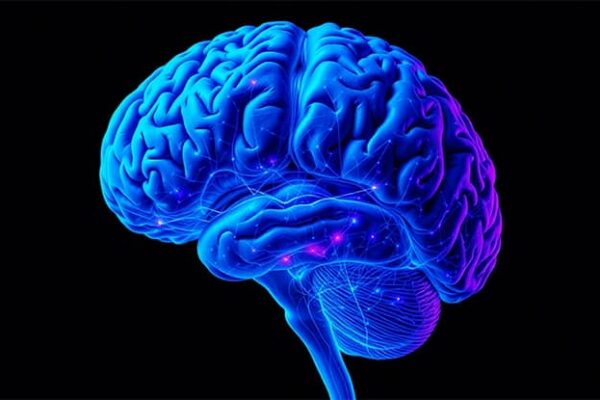Abulia – is a psychological condition characterized by a significant decrease in willpower and the ability to engage in purposeful activities. A person experiencing abulia may feel inner emptiness, apathy, and an inability to make even simple decisions. Unlike ordinary laziness, which is temporary and depends on external circumstances, abulia is a prolonged condition that significantly affects quality of life.
This condition often arises as a symptom of other mental or neurological disorders, such as depression, schizophrenia, or after brain injuries. Abulia not only limits a person’s activity but also diminishes their motivation for basic actions, such as self-care or communication with loved ones.
The modern pace of life, overwhelmed by stress, high demands, and social pressure, creates the ideal environment for developing emotional and psychological disorders, including abulia.
Factors contributing to abulia
- Increase in depression cases. According to statistics, depression is one of the most common mental disorders, and abulia is often its companion.
- Social isolation. Technologies designed to simplify life simultaneously reduce real-life communication. Loneliness and lack of support exacerbate the risk of abulia.
- Emotional burnout. Many people face overload at work and home, gradually leading to a loss of energy and interest in life.
- Lack of awareness. People often confuse abulia with mere fatigue or laziness, delaying seeking help.
Thus, abulia is an important topic for discussion, as it affects not only individuals but also society as a whole, reducing productivity and quality of life.

What is abulia?
Abulia is a psychological condition characterized by a decrease or complete absence of willpower, motivation, and the ability to engage in independent activity. It is not merely “laziness” or temporary apathy but a deeper psychological disturbance that can have serious consequences for a person’s life. People with abulia feel helpless and unable to act, even in ordinary life situations. They may remain motionless for hours, showing no initiative or emotional reaction.
It is important to understand that abulia is not an independent disease but a set of symptoms indicating deeper issues. Therefore, timely recognition of abulia is key to preventing its development and negative impact on a person’s quality of life.
Definition of the term
The word “abulia” comes from the Greek words a- (absence) and boulē (will), which literally means “lack of will.” In psychology and psychiatry, this term is used to describe a condition in which a person loses the ability for independent activity and decision-making.
Main characteristics of abulia:
- Lack of initiative. The person shows no desires or aspirations, even for basic actions such as eating or self-care.
- Motivational impairment. There is no sense of satisfaction or purpose in actions.
- Reduced emotionality. Emotional reactions are weak or entirely absent.
This condition can manifest as a temporary phenomenon after severe stress, but in most cases, it is a symptom of complex mental or neurological illnesses.
Differences between abulia, apathy, and procrastination
Abulia is often confused with apathy or procrastination, but these states have significant differences:
1. Abulia:
- A complete loss of willpower and the ability to act.
- The person may not even realize they need to act.
- Often a chronic condition requiring professional intervention.
2. Apathy:
- Emotional indifference, loss of interest in certain areas of life.
- The person can fulfill their responsibilities but without enthusiasm or satisfaction.
- Often a temporary phenomenon associated with stress or fatigue.
3. Procrastination:
- Avoidance of specific tasks, even when aware of their importance.
- The person delays action due to fear of failure or unwillingness, but they may remain active in other areas of life.
- Usually overcome through discipline or motivational techniques.
It is important to understand that abulia is a more serious and profound condition than apathy or procrastination and requires attention from specialists. Recognizing these differences is key for proper diagnosis and selecting appropriate methods of assistance.

Early Signs of Abulia
Abulia, as a psychological condition, develops gradually, often being mistaken for temporary fatigue, apathy, or unwillingness to take responsibility. However, early signs of this condition are crucial for recognition and timely intervention.
One of the characteristics of abulia is its impact on all aspects of a person’s life: emotional state, physical condition, and social activity. A person loses interest in activities they once enjoyed, becomes indecisive, and avoids even simple actions like communication or fulfilling routine duties. This gradual decline in activity can lead to complete isolation and a significant deterioration in the quality of life.
Emotional Symptoms
The emotional sphere is one of the first areas affected by the development of abulia. Enjoyable activities, communication with loved ones, and even basic daily actions become burdensome. Emotional indifference may go unnoticed initially but can progress into deep apathy, draining life of its color.
- Loss of interest in routine activities.
A person with abulia gradually loses interest in activities that previously brought them joy. This might include hobbies, professional responsibilities, or even basic daily tasks like cooking or self-care. For example, someone who once loved reading might completely stop picking up books. Such changes are often perceived as “normal fatigue” but become a red flag if they last more than a few weeks. - Indecisiveness in simple daily situations.
Abulia also manifests as difficulty in making even the simplest decisions. A person may spend hours choosing between two options that previously posed no challenge. For instance, deciding what to eat for breakfast or whether to go for a walk becomes exceedingly difficult. This is linked to a loss of internal drive and a diminished ability to analyze situations.
Physical Symptoms
Abulia not only impacts emotional well-being but also manifests in physical changes. This condition is not related to physical exhaustion or bodily illnesses but has a psycho-emotional basis.
- Persistent fatigue without objective causes.
A person feels exhausted even after extended rest. Fatigue may be accompanied by a sensation of “heaviness” throughout the body, even in the absence of physical exertion. This symptom is not tied to actual physical illnesses but reflects emotional and psychological depletion. - Sluggish movements and speech.
Abulia can affect physical activity. A person becomes sluggish, their movements slow, as if they are in a constant state of fatigue. Speech becomes slow, with long pauses between words, even during simple conversations. These symptoms are often more noticeable to others than to the individual, who may not realize anything is wrong.
Social Symptoms
Social isolation is one of the most evident signs of abulia. Detachment and avoidance of responsibilities are not deliberate choices but rather consequences of psychological exhaustion and a lack of emotional resources for interaction.
- Avoidance of communication.
A person with abulia begins to avoid social interactions, even with their closest circle. For instance, they may refuse to meet friends, ignore phone calls, or simply shut themselves in their room. This symptom is particularly dangerous as isolation further exacerbates abulia. - Refusal of responsibility and duties.
The individual stops fulfilling even the simplest obligations. This could range from refusing to work to neglecting basic household tasks. For example, they might stop cleaning the house, cooking, or caring for loved ones, even if these were previously routine activities. Such behavior often leads to misunderstandings, with others interpreting it as laziness or unwillingness to act.
Recognizing these early signs of abulia is an important step toward timely identification of the problem. The person may not notice changes in themselves, but those around them can observe their behavior and assist in seeking help or initiating self-improvement.

Causes of Abulia
Abulia, as a complex psychological condition, arises from a combination of various factors. Its development can be triggered by both internal and external causes. Most commonly, it is the result of psychological, physiological, and social factors that individually or collectively undermine a person’s emotional and physical well-being.
Psychological disorders, such as depression or anxiety, create conditions for a loss of motivation and will to act. Physiological issues, including brain dysfunction or hormonal imbalances, affect the nervous system’s functioning. Social factors like isolation or lack of support exacerbate these manifestations, creating a vicious cycle of inactivity and indifference.
Psychological Causes
Abulia often arises as a consequence of psychological disorders. Chronic stress, depression, and anxiety play a key role in its development.
- Chronic Stress
Prolonged stress depletes a person’s emotional and physical resources.- Constant worry, work-related problems, or personal life challenges can create feelings of hopelessness.
- Under such conditions, finding the energy to act becomes difficult, and the desire to overcome challenges disappears.
- Depression
Abulia is one of the most common symptoms of depression.- In this state, a person feels persistent sadness, lack of joy, and motivation.
- Even routine tasks seem overwhelming, further deepening isolation and inactivity.
- Anxiety Disorders
Anxiety often comes with a paralyzing fear of the future, making decision-making impossible.- A person avoids any action, fearing mistakes or negative outcomes.
- This leads to a gradual loss of initiative and reduced activity.
Physiological Causes
Physiological disturbances are another significant factor that can trigger abulia. They affect brain function and hormonal regulation, directly impacting behavior and emotional state.
- Brain Dysfunction
Abulia is associated with dysfunction in the prefrontal cortex, responsible for motivation, decision-making, and behavioral control.- This may result from trauma, strokes, or neurodegenerative diseases like Parkinson’s or Alzheimer’s.
- Damage to brain structures leads to difficulties initiating actions, even when the need is understood.
- Traumatic Brain Injuries
Physical injuries, particularly in the frontal lobes, can cause abulia.- In such cases, there is not only a decrease in activity but also impairment of cognitive functions.
- The individual may lose self-control, becoming passive and indifferent to the world around them.
- Hormonal Imbalance
Hormones, particularly dopamine and serotonin, play a key role in regulating mood and motivation.- A reduction in these neurotransmitters can lead to a loss of interest in life and decreased willpower.
- This is especially common in people with hormonal disorders, such as during depression or after intense stress.
Social Causes
Social conditions also significantly influence the onset of abulia. They can exacerbate existing psychological or physiological problems, creating a favorable environment for this condition to develop.
- Isolation
Loneliness and lack of social contact intensify apathy and reduced activity.- A person who lacks support feels isolated, leading to a loss of interest in life.
- Social isolation may arise from voluntary withdrawal or objective circumstances such as illness or relocation.
- Lack of Support
The absence of emotional support from loved ones or friends often serves as a catalyst for abulia.- A person facing challenges alone loses the motivation to seek solutions.
- Misunderstanding or criticism from others can further worsen the condition.
- Emotional Burnout
Constant stress and overwork, especially in professional settings, lead to emotional exhaustion.- The person feels drained, becoming incapable of performing even simple tasks.
- Burnout is particularly common among people working in high-stress environments or carrying excessive responsibilities.
Understanding the causes of abulia not only aids in its diagnosis but also helps in selecting effective treatment methods. A comprehensive approach that considers all three aspects—psychological, physiological, and social—is key to addressing this condition effectively.

Ways to Self-Help with Abulia
Self-help for abulia is an important step toward restoring emotional, physical, and social well-being. A person who acknowledges their challenges and seeks to overcome them has already taken a significant first step toward improvement. Self-help methods aim to activate the body, restore self-confidence, and revive motivation for life.
The main focus in self-help is a comprehensive approach, which includes physical activity, adjustments to daily routines, emotional management, and social engagement. It is essential to understand that even small, consistent efforts can have a significant effect on overcoming abulia.
Physical Activity
Physical exercises are one of the most effective ways to combat abulia. They help activate the body, improve circulation, and stimulate the production of endorphins—“happiness hormones.”
- Regular Walks or Sports Activities
- Daily walks in fresh air, even for 15–30 minutes, can significantly boost energy levels.
- Sports activities like yoga, swimming, or running promote endurance and create a sense of accomplishment.
- It’s important to start with small loads, gradually increasing their intensity.
- Stretching and Breathing Exercises
- Stretching relaxes the body, helps relieve muscle tension, and stimulates concentration.
- Box breathing involves performing breathing cycles: inhale for 4 counts, hold your breath for 4 counts, exhale for 4 counts, and hold again for 4 counts. This technique helps calm the nervous system and restore emotional balance.
Daily Routine
Establishing a clear daily structure is one of the key elements in combating abulia. An organized routine helps regain control over life and adds a sense of stability.
- Setting Clear Schedules and Small Goals
- Plan your day by allocating time for work, rest, physical exercises, and leisure.
- Set small, achievable goals. For example, prepare breakfast or read one page of a book. This will gradually help restore self-confidence.
- Adhering to a Sleep Schedule
- Regular sleep is essential for restoring energy. Try to go to bed and wake up at the same time daily.
- Create favorable sleep conditions: ventilate the room, turn off gadgets an hour before bedtime, and use relaxing techniques such as meditation before sleep.
Psychological Support
Working on emotions helps reduce anxiety, improve mood, and find inner motivation.
- Keeping an Emotion Diary
- Write down your emotions and thoughts daily. This helps understand which events or circumstances trigger certain feelings.
- An emotion diary allows you to track progress in your condition and find positive moments even in difficult situations.
- Practicing Gratitude and Positive Thinking
- Every day, write down three things you’re grateful for. These can be simple things: a warm drink, a loved one’s smile, or a beautiful view from the window.
- Focus on positive aspects, avoiding self-criticism or dwelling on failures.
Social Activities
Gradual re-engagement in social life helps overcome isolation, a key factor in abulia.
- Gradual Engagement in Communication
- Start with short conversations with close ones or friends. Discuss light topics or share your mood.
- Avoid forcing yourself to be overly active right away—small steps are entirely sufficient.
- Volunteering or Joining Interest Groups
- Volunteer work or participating in clubs helps you feel needed and integrated into social life.
- Interacting with people who share your interests boosts energy levels and fosters positive emotions.
Applying these methods requires time and patience, but regularity and persistence will undoubtedly yield results.

When to Seek Professional Help?
Abulia is a condition that can be managed, but in some cases, self-help alone is not enough. If symptoms worsen or significantly hinder daily life, it’s essential to seek professional help. Timely professional intervention can prevent further complications and help a person return to an active and fulfilling life.
Situations Where Self-Help Is Ineffective
Sometimes, despite significant efforts, a person may not see improvement in their condition. In such cases, self-help may not suffice.
- Continuous Worsening of Symptoms
- If abulia deepens and manifestations like apathy, loss of motivation, and lack of initiative intensify, this signals the need for professional intervention.
- For example, if a person loses interest in everything, including basic needs (food, sleep, hygiene), this may indicate serious problems.
- Lack of Response to Self-Help Efforts
- Regular efforts like physical activity, journaling, or maintaining a routine yield no results.
- The person experiences constant fatigue, powerlessness, and indifference that persist even after prolonged rest.
- Negative Impact on Professional and Social Life
- The condition becomes so severe that the person cannot perform professional duties or maintain relationships with loved ones.
- For instance, avoiding contact with friends or colleagues, losing interest in family life, or experiencing conflicts due to these issues.
Recommendations to Consult a Psychologist, Psychotherapist, or Neurologist
Specialists provide help depending on the nature and severity of abulia. Choosing a specialist depends on the causes behind the condition.
- When to Consult a Psychologist?
- A psychologist can help if abulia has psychological roots, such as stress, emotional burnout, or relationship difficulties.
- They conduct sessions to identify the underlying causes of the condition and use therapeutic techniques like cognitive-behavioral therapy or art therapy.
- When Is a Psychiatrist Needed?
- If abulia is accompanied by depression, anxiety disorders, or other mental health issues, a psychiatrist’s help is necessary.
- Psychiatrists may prescribe medications, such as antidepressants or stimulants, in combination with psychotherapy.
- They also help create an individualized crisis recovery plan based on the patient’s needs.
- When to See a Neurologist?
- If abulia is associated with physiological disorders like brain injuries, strokes, or neurodegenerative diseases, a neurologist’s evaluation is required.
- Neurologists perform diagnostics (MRI, CT scans, tests) to detect brain function abnormalities and prescribe appropriate treatment.
- If necessary, they collaborate with other specialists, such as rehabilitologists or endocrinologists.
The Importance of Timely Intervention
Delaying professional help can worsen the condition and complicate treatment. Abulia may be a symptom of more serious disorders such as depression, schizophrenia, or central nervous system diseases. Therefore, if self-help yields no results within a few weeks or the condition rapidly deteriorates, do not delay seeking assistance.
Professional help is not a sign of weakness but a responsible step toward recovery. Timely intervention allows for faster improvement and a return to normal life.

Prevention of Abulia
Abulia can arise not only from severe psychological or physiological causes but also from accumulated everyday stress, fatigue, and lack of support. Therefore, preventing this condition is an essential part of self-care. It focuses on cultivating a lifestyle that fosters psychological resilience, preserves motivation, and maintains activity.
The prevention of abulia is based on three core principles: maintaining psychological health, effective stress management, and the importance of social support. These aspects are interconnected and enable individuals to sustain inner harmony and activity in their daily lives.
Developing Habits to Support Psychological Health
Psychological health is the foundation for effective functioning in all areas of life. Daily beneficial habits help maintain emotional balance and prevent the development of abulia.
- Regular Physical Activity
- Physical exercise not only strengthens the body but also promotes the production of endorphins, which enhance mood.
- Dedicate 20–30 minutes a day to movement: walking, yoga, swimming, or any other activity that brings joy.
- Engaging in Hobbies and Interests
- Pursuing favorite activities helps relieve stress and fills life with positive emotions.
- Choose hobbies that bring happiness and allow for self-expression: painting, cooking, music, etc.
- Meditation and Mindfulness Techniques
- Practices such as meditation or square breathing help reduce anxiety, focus on the present moment, and maintain emotional balance.
- Set aside 5–10 minutes daily for meditation or simply observe your breathing in a quiet environment.
Managing Stress and Setting Life Priorities
Stress is one of the main causes of abulia, so learning to manage it effectively is a key step in prevention.
- Time and Task Management
- Planning your day with priorities in mind helps avoid overload and feelings of chaos.
- Use time management techniques, such as the “Pomodoro” method or the 80/20 rule, to focus on the most important tasks.
- Setting Boundaries and Balancing Work and Rest
- Do not hesitate to say “no” to excessive responsibilities or others’ expectations. This will help prevent burnout.
- Follow the principle of balance: work should not consume all your time; leave room for rest, family, and personal hobbies.
- Learning Relaxation Techniques
- Relaxation methods such as progressive muscle relaxation or aromatherapy help reduce stress.
- Allocate time to simply be in peace: listen to music, meditate, or enjoy nature.
The Role of Social Environment in Supporting Activity
Social connections are a crucial resource for preventing abulia. Support from loved ones and active interaction with others promote emotional well-being.
- Support from Family and Friends
- Regular communication with family and friends helps maintain a sense of involvement and significance.
- Do not hesitate to share your feelings or ask for help during tough times.
- Participation in Interest Groups
- Volunteering, sports clubs, or other group activities allow you to expand social connections and find like-minded individuals.
- Social activity helps avoid isolation, which often acts as a trigger for abulia.
- Attending Personal Development Events
- Participating in training sessions, workshops, or lectures on interesting topics not only expands knowledge but also inspires new achievements.
- Such events allow interaction with people who motivate and support a positive approach to life.
Preventing abulia is a process that requires constant attention to oneself and one’s needs. Developing healthy habits, managing stress, and nurturing social contacts help not only to prevent this condition but also to improve overall quality of life. Always remember: it is easier to prevent a problem than to deal with it later.

Conclusion
Abulia is a condition that should not be ignored. Its early symptoms, even if they seem insignificant, can gradually intensify, complicating daily life. It is important to understand that this condition is not a weakness or flaw but rather a signal from the body about the need for change. Thus, timely awareness of the problem and the first steps to address it can prevent serious consequences.
The path to restoring activity and motivation begins with small but regular actions. These can include simple walks, establishing clear daily routines, small achievable tasks, or conversations with a friend. The key is not to expect immediate results or undervalue your efforts. Every step, no matter how small, is a significant contribution to returning to an active and fulfilling life.
Recovery from abulia is a process that takes time, patience, and support, but it is achievable. Even when it seems that the condition is too severe, there is always hope for improvement. Through self-help, support from loved ones, and, if necessary, professional assistance, it is possible to regain joy in life, find motivation, and restore the desire to act. Abulia is not a sentence but a temporary state that can be overcome by taking the first step toward change.




